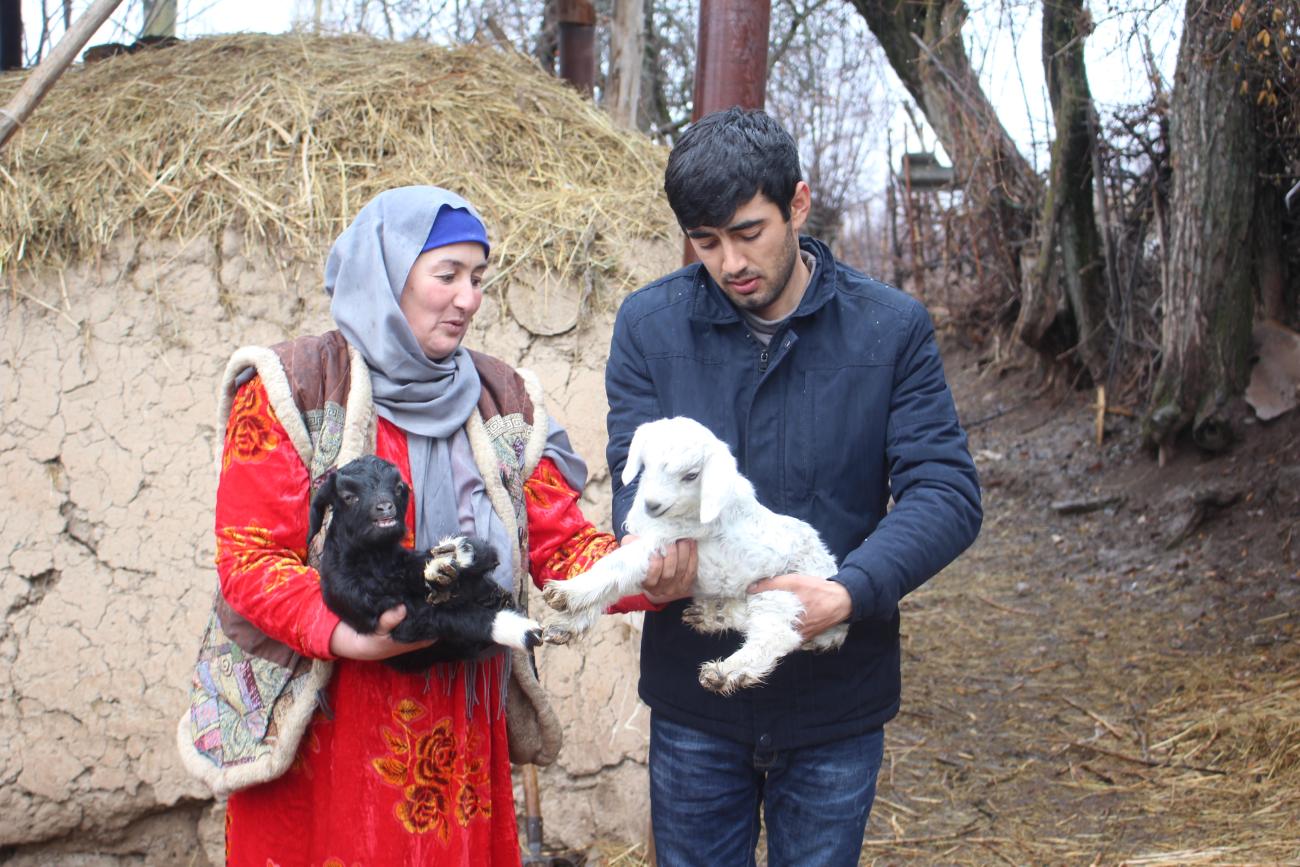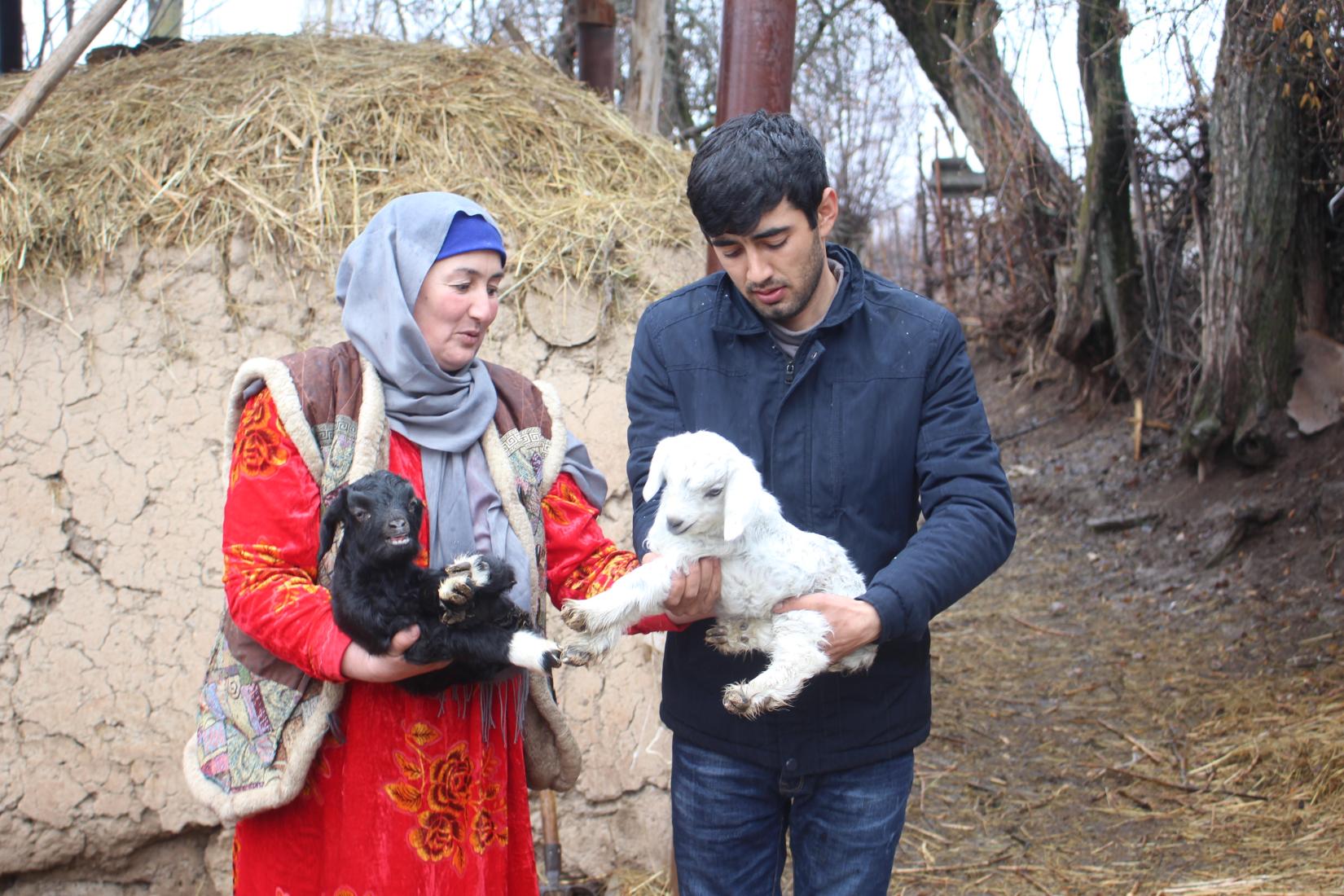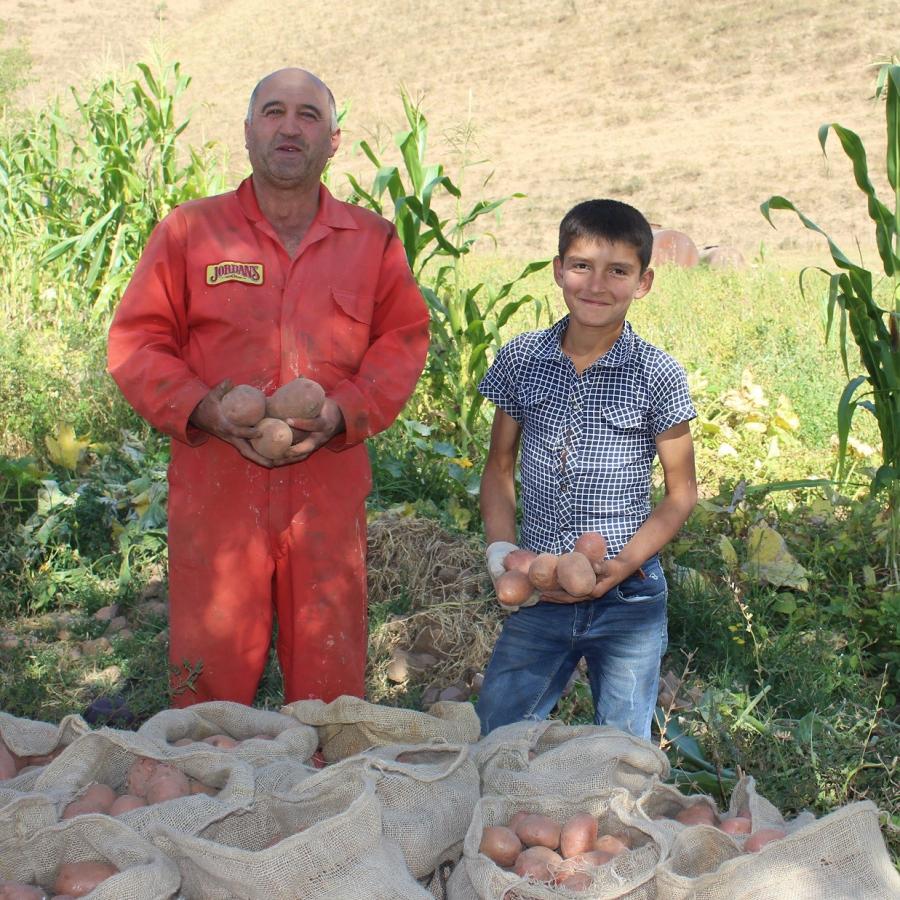Tajik women’s solidarity builds stronger households

How the FAO project supported by the European Union helps to change women's lives in the field through training, access to resources and institutional change.
“I am 46, and I am a successful entrepreneur, a mother of four kids and a wife of a wonderful husband”-, says Sitoramoh Tojiddinova, a Tajik woman-farmer from Nurobod district. “I married early, in my 18 - being almost a child, having limited education, knowing nothing about home making or taking care of kids. I was lost at some point, without without proper skills and knowledge and the idea where to go, but at that stage, it was my mother-in-law who strongly supported me, and it was her, who taught me the skills to maintain the decent life in the farm and manage the family life. I cherish this experience up to today – it helped me with the business that I am running now.”

As agriculture is the main source of food and income in the rural areas of Tajikistan, Sitoramoh and her family were growing potatoes for own consumption, until one day in 2020, and it was her husband who encouraged her to become a member of a farmer’s cooperative established in their area. “The cooperative is provided with seeds and supported with inputs - this may increase our harvest and we may sell potatoes for living,” he argued. First, she was hesitant to join, as she did not have any experience, but she knew that supported by her husband she could manage. She was convinced.
“In Tajikistan, the husband’s and his men’s relatives support is always crucial when it comes to women’s active participation in agricultural production at various levels of the value chain, including selling goods. Social norms limit women’s empowerment and they are either discouraged by family members or choose themselves not to engage with public bodies. This complicates the process of registering farming enterprises, applying for loans, paying taxes on land or livestock, taking part in training and accessing extension services, in addition to other activities associated with agricultural production. FAO in Tajikistan with financing from the European Union support smallholder farmers through practical training to produce and market agricultural products, benefitting from storage facilities, provision of machinery and other services. Participation of women and their empowerment is mandatory, but not always easy to accomplish. ‘Sitoramoh was able to join the initiative, because she was fully supported by the family and her spouse”-, says Masuda Saidova, FAO National project manager.

In addition to training, EU funds were also used by FAO to distribute quality potato seeds, which was of a crucial importance, as it is very hard to find such quality seed during sowing season in Tajikistan. The idea is to multiply the high-quality potato seed, which have a much higher yield than seed potatoes usually used in the country, in the rural communities to ensure greater food security and incomes of rural families. In May 2020, Sitoramoh received one ton of high-quality potato seed “Red Scarlett” and planted it on 0.20 hectares of land. Her family harvested about 23 tons of potatoes and returned 3 tons of seeds back to the cooperative for the next sowing campaign that are stored in a warehouse, as of the rules of the cooperative agreement. The next campaign will support other women and men in the community.
“I consider it having a ‘triple’ effect- the food that you secure for your table, the money that you get for the rest of the crop and the solidarity that you learn from helping each other. This is what my mother-in-law once taught me to do”-, smiles Sitoramoh. She hopes that more women will join agricultural cooperatives, and she acknowledges the power of women getting together.
Being part of the joint forces, also helped farmers to get a stronger voice in the supply chain and benefit from economies of scale through bulk purchase of inputs (seed, fertilizer, chemicals) and sales of products. Cooperatives mainly offer networks of mutual support and solidarity that allow to improve self-resilience, collectively negotiate better terms for contracts, prices, process and access to a wide resources and services.
“Last year, during a period of fertilizer shortages and skyrocketing prices we jointly purchased fertilizers which resulted in cost savings for farmers. We had an opportunity to get 20% discount for bulk purchasing of fertilizers,”-, emphasized Sitoramoh. “In the past, as individual farmers we had little bargaining or purchasing power.”
Cooperative membership has a particularly strong positive impact on women’s decision-making opportunities at the household, group and community levels. Sitoramoh acknowledges the potential and strength of it as a path to overall women’s empowerment.
Activities related to the strengthening agricultural cooperatives are part of the project “Strengthening institutions and capacity of the Ministry of Agriculture and State Veterinary Inspection Service for policy formulation”, funded by the European Union. The main objective of the project is to assist the Government of Tajikistan in institutional reforms of the agricultural sector, including food security and safety.



